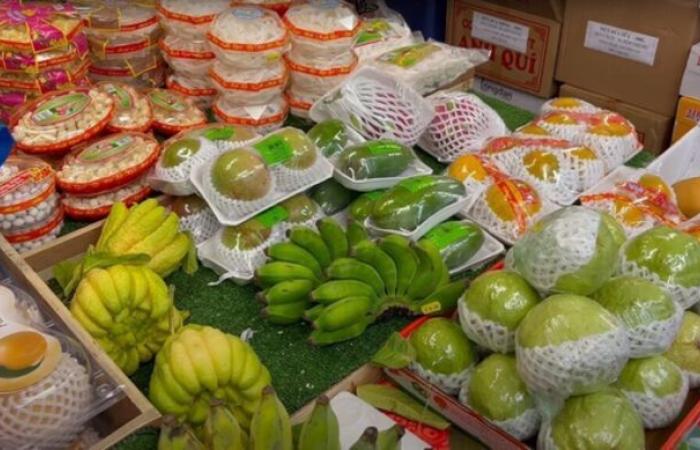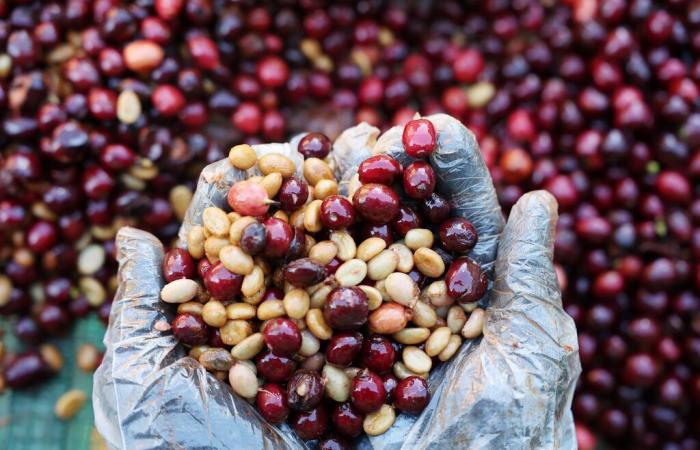>> Affirm the quality of Vietnamese agricultural products
>> Vietnamese companies invited to move to official export
>> Vietnamese agricultural products are popular in Guangdong province
| Regional specialties and Vietnamese fruits are sold in Vietnamese stores in the United Kingdom. |
| Photo : VNA/CVN |
Currently, many projects aimed at strengthening exports to key markets such as China, Japan and the European Union (EU) are being successfully implemented. These efforts are combined with strategies to open new markets such as the Middle East, Africa and South Asia. The negotiations and signatures planned for 2025 constitute a solid basis to enable agricultural exports to take a new step.
The fruit and vegetable sector aims to achieve a turnover of 8 billion USD in 2025 and reach 10 billion USD in the near future, said Nguyên Thanh Bình, president of the Vietnam Fruit Association and vegetables.
The aquaculture sector, meanwhile, recorded an export value of USD 10.07 billion in 2024, an increase of 12.2% year-on-year. The target for 2025 is growth of 10 to 15 percent, with the expected figure exceeding USD 11 billion, according to Nguyên Hoài Nam, deputy secretary general of the Vietnam Aquatic Products Producers and Exporters Association (VASEP). .
At the same time, many industrial agricultural products such as coffee, pepper and cashew also have remarkable growth opportunities. In 2024, these three products will join the “multi-billion dollar export club”.
Coffee, in particular, has become the third largest agricultural export of Vietnam, after vegetables and rice, with a turnover of 5.48 billion USD. Increasing global demand for coffee and improving the quality of Vietnamese coffee, with a range of deeply processed products, provide the foundation for this industry to reach USD 6 billion in 2025.
| Coffee, in particular, has become the third largest agricultural export of Vietnam. |
| Photo: Tuan Anh/VNA/CVN |
According to Nguyen Anh Phong, deputy director of policies and strategies for agricultural and rural development, exports of agricultural products could continue to grow in the first quarter of 2025 thanks to increased global demand for food imports. This situation is due to supply disruptions in certain countries affected by armed conflicts and to commercial competition between great powers.
To ensure sustainable and efficient export, Lê Thanh Hòa, deputy director of the Department of Quality, Processing and Market Development, stressed the need to supplement mechanisms and policies to support the development of processing. He also emphasized the importance of developing large-scale raw material zones and connection centers for the production, processing and consumption of agricultural products, as well as building value chains for each type of product, associated with modern logistics infrastructure.
Furthermore, localities should focus on training, guidance and improvement of skills, production and business capabilities of farmers. It is also essential to effectively implement green and organic farming models to quickly and fully meet the strict requirements of import partners regarding quality, environment and labor standards.
VNA/CVN







